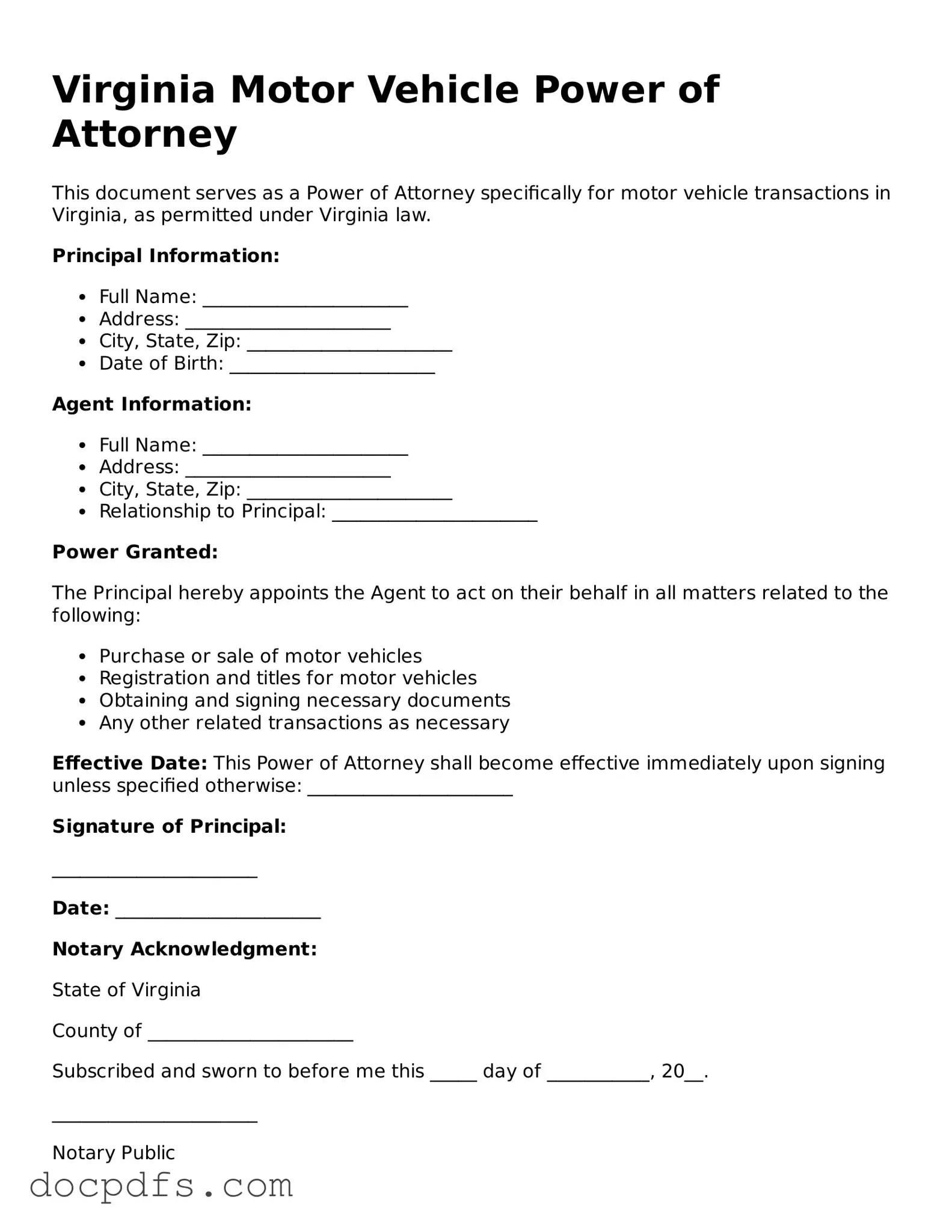Free Virginia Motor Vehicle Power of Attorney Form
The Virginia Motor Vehicle Power of Attorney form is a legal document that allows an individual to designate another person to handle specific motor vehicle-related transactions on their behalf. This form is essential for those who may be unable to attend to these matters personally, ensuring that their interests are represented effectively. Understanding how to properly complete and utilize this form can streamline processes related to vehicle registration, title transfers, and other important tasks.
Open Motor Vehicle Power of Attorney Editor Now

Free Virginia Motor Vehicle Power of Attorney Form
Open Motor Vehicle Power of Attorney Editor Now

Open Motor Vehicle Power of Attorney Editor Now
or
⇓ Motor Vehicle Power of Attorney
Finish this form the fast way
Complete Motor Vehicle Power of Attorney online with a smooth editing experience.